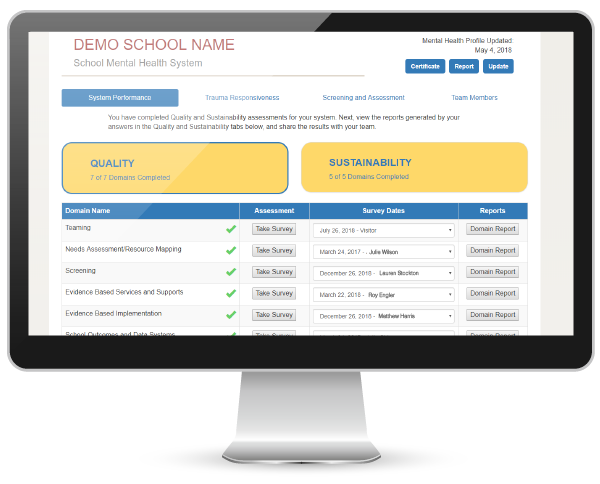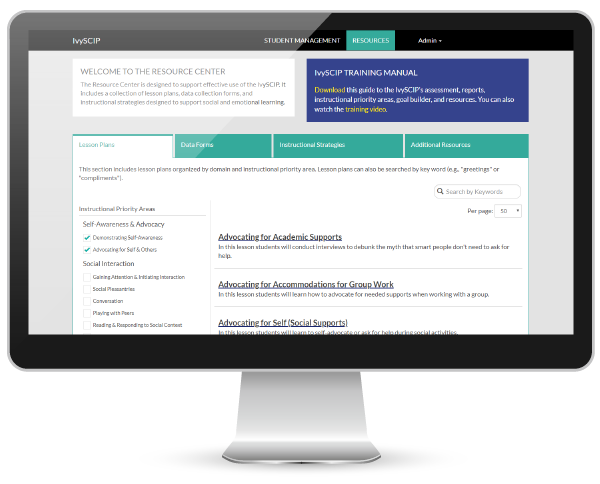ASSESSMENT & REPORTING
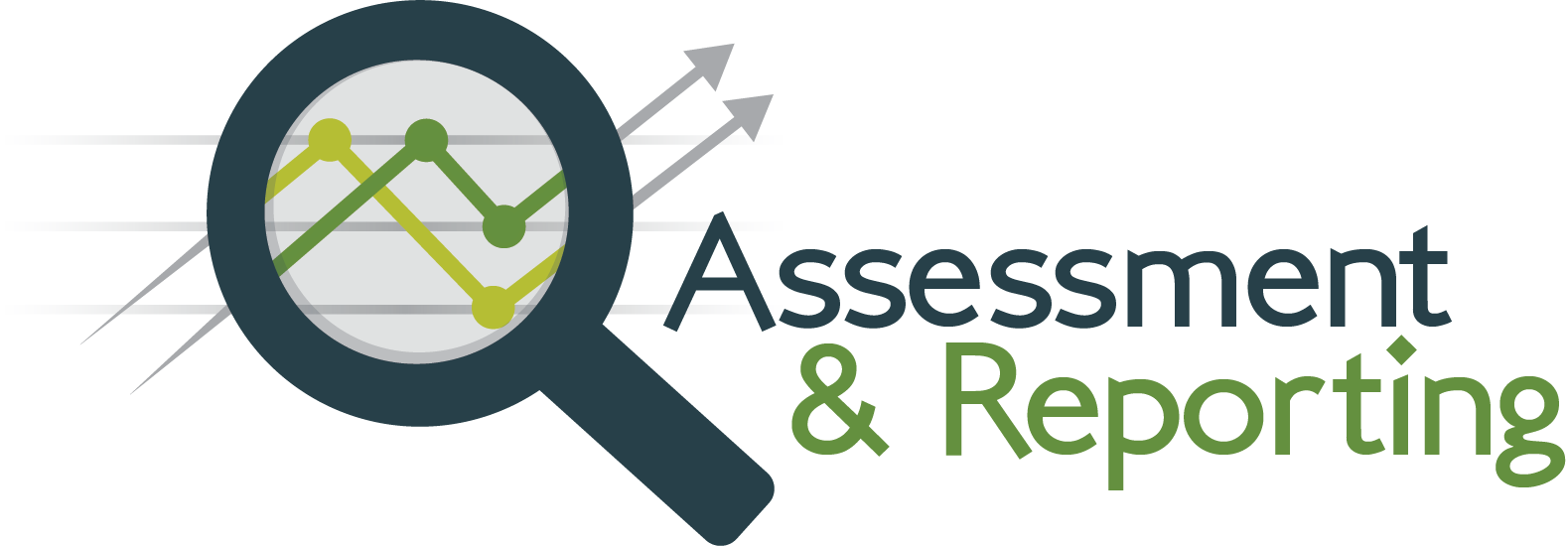
Quality data drives effective decisions
Are you frustrated with time-consuming pencil and paper data collection and delays in getting results? 3C’s online assessment and reporting tools efficiently collect and analyze data to guide decision making and next steps. For example, our technology can:
- guide learners toward the best resources to meet their needs
- help organizations determine if they are meeting their goals
- drive continuous quality improvement (CQI) of community-based prevention programs
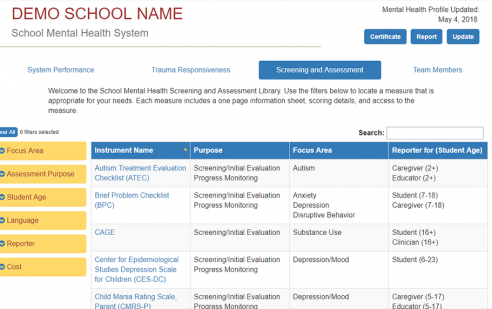
A bank of assessments
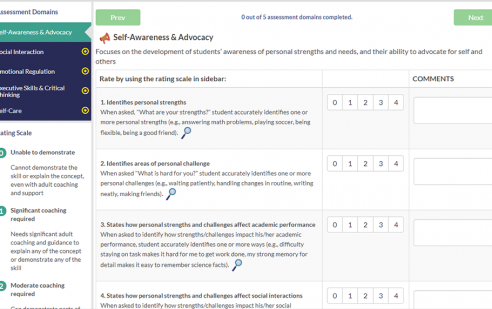
Engaging assessment questions
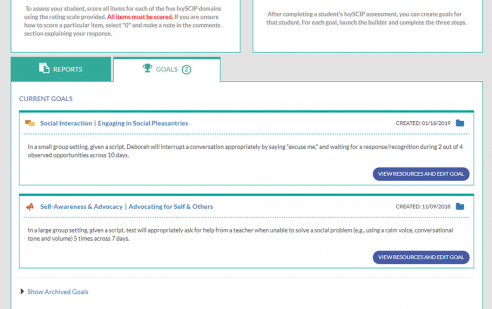
Student goals based on assessment responses

Student performance over time
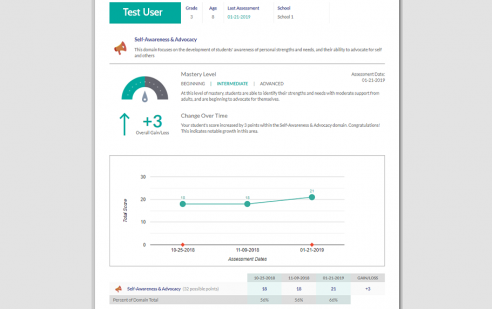
Graphic of student results
Assessment
3C will turn your survey questions into engaging online assessments. Based on user responses, branching technology personalizes the assessment real-time. This customization allows users to focus on topics relevant to their specific needs or situation.
Reporting
Back-end analysis of user responses provides real-time data results and generates a recommended plan of action. Users can then track their progress on selected goals.
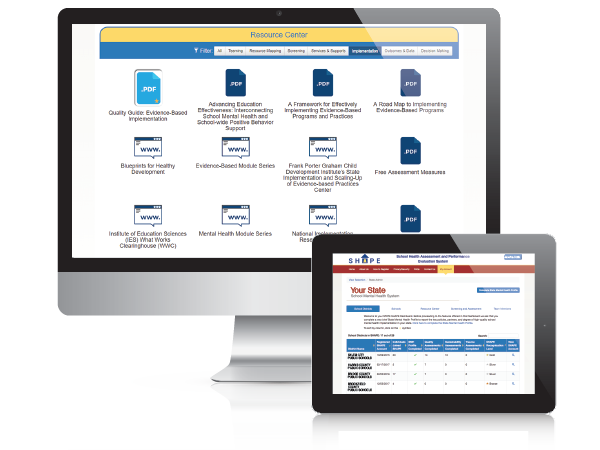
Resources
Based on results, the system can direct users to personalized recommendations for learning and CQI resources
Admin Dashboard
Program administrators can view aggregate data, report across users against a recommended plan, and evaluate the success of the program over time.
Share our Assessment & Reporting flyer.


